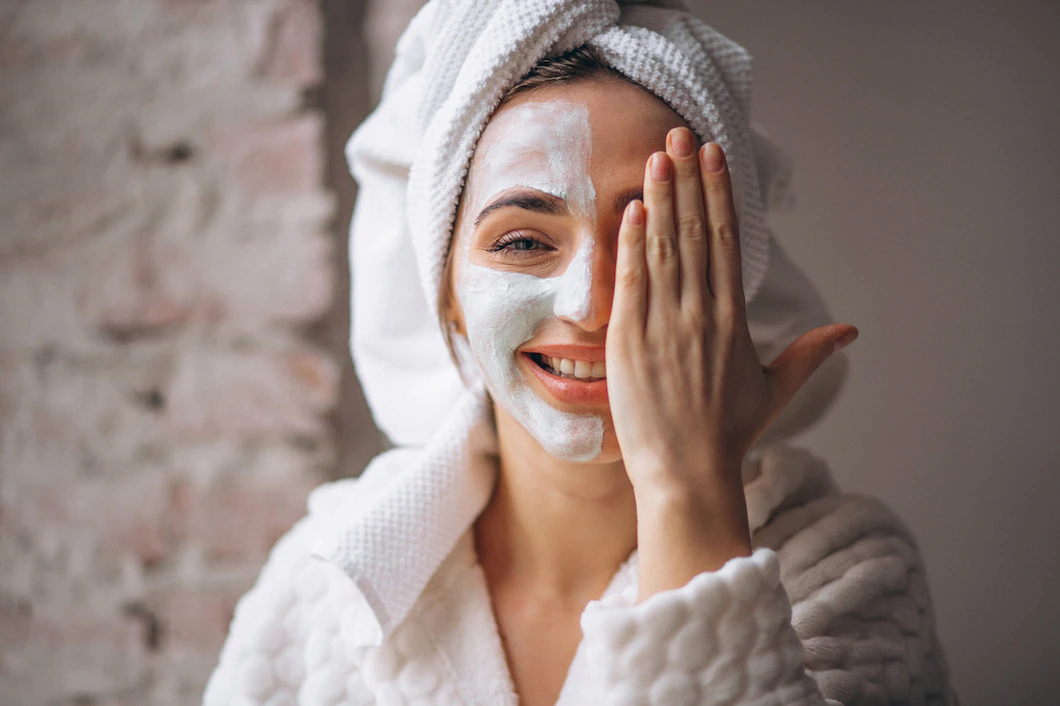
Finding an acne treatment that is right for the skin can take years and numerous doctor visits.
And regardless of how much time and money an individual puts into a skin care regimen, most of us will still struggle with the occasional breakout.
However, aside from that one common factor, each person’s approach to dealing with acne will be unique.
No universal advice can be given because everyone has different skin types, skin tones, lifestyles, and genetic backgrounds.
Even though every person’s skin is unique, at least one skin care tip will help lessen inflammation and eliminate acne sooner rather than later.
4 Skin Care Tips When Using Acne Products
1. Wash Face Two Times Daily
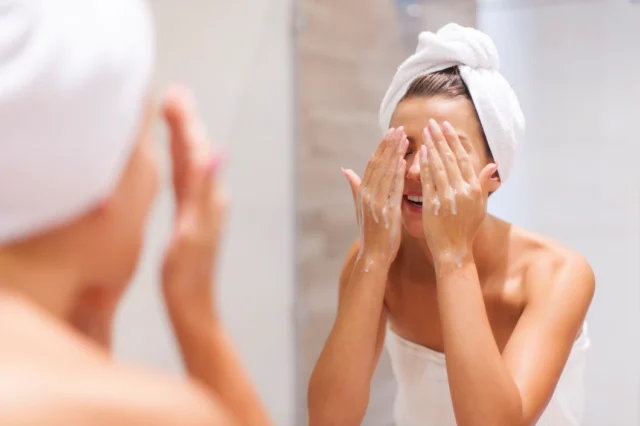
Make sure to wash your face as part of your morning and evening skincare routine if somebody is prone to breakouts or has oily skin.
Participants in a study that explicitly examined face washing were instructed to wash their faces one, two, or four times daily for six weeks.
At the end of the trial conducted by the skin care clinic, individuals who cleaned their faces twice a day had much fewer acne lesions
The participants with the most significant increase in pimples were those who only cleaned their faces once daily.
2. Choose A Mild Cleanser
Most drugstore aisles are stocked with different facial cleansers. It can be unclear when trying to decide which the best pick is. Fancier might only sometimes be better when selecting the best cleaner.
No matter what kind of cleanser someone uses, an analysis of 14 studies concluded that there is little difference in skin outbreaks.
The trials covered products such as cleansing bars, antibacterial soaps, and alpha- and beta-hydroxy acid-containing cleansers.
A gentle cleanser with few additives and perfumes can be more effective than more pricey ones.
3. Use An Acne-Fighting Agent

According to the American Academy of Dermatology (AAD), numerous topical treatments can aid in treating acne. Knowing what kind of acne an individual has is essential to choosing the best treatment. The AAD suggests doing the following, depending on the type of acne one has:
• Blackheads and other similar pimples on the face are known as comedonal acne. Look for retinoid-containing medications like adapalene gel (Differin).
• Topical benzoyl peroxide, used alone or in conjunction with a topical retinoid, can help treat mild acne.
• Topical dapsone 5 percent gel is advised, especially for adult females with inflammatory acne.
• Acne and the risk of acne scarring can both be decreased with the use of azelaic acid treatments.
• The AAD advises using benzoyl peroxide, tretinoin, or adapalene gel to simultaneously treat several forms of acne.
4. Apply A Moisturizer
How might a moisturizer help to maintain clear skin? If someone’s skin is dehydrated, it could try to make up for the dryness by creating too much oil, which causes breakouts.
Moisturizers don’t have to be pricey or include unique ingredients, just like cleansers. Find a moisturizer that is non-comedogenic above everything else.
It won’t clog the pores because of this. To avoid a greasy, heavy feeling, moisturizers described as lightweight may be the best choice if people have oily skin.
5 Mistakes To Avoid When Using Acne Products
1. Excessive Face Washing
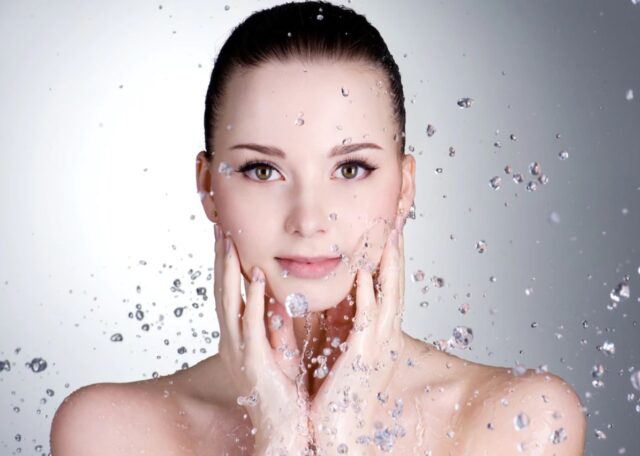
One feels fresher the more often they wash their face. Wait! Many people believe this fallacy.
Excessive washing of the face can strip away the skin’s natural oils, forcing the body to create more oil, which increases the likelihood of developing pimples or zits.
Don’t wash your face occasionally, then. Although one will feel suitable for a while, acne will eventually surface. Therefore, limit to two face washes every day.
2. Harsh Products
People frequently scrub or wipe their faces vigorously to eliminate germs and bacteria.
They consequently use severe skin care products. But in reality, that is destructive. It’s because your skin needs to be handled gently. You must avoid using abrasive scrubs or exfoliants.
Additionally, it would help if you stayed away from products with alcohol in them because alcohol makes your skin tight, dry, and irritating.
Additionally, it would help if you refrained from rubbing your skin dry with a towel. The secret to preventing acne is to tap it lightly.
3. Use Of Moisturizers
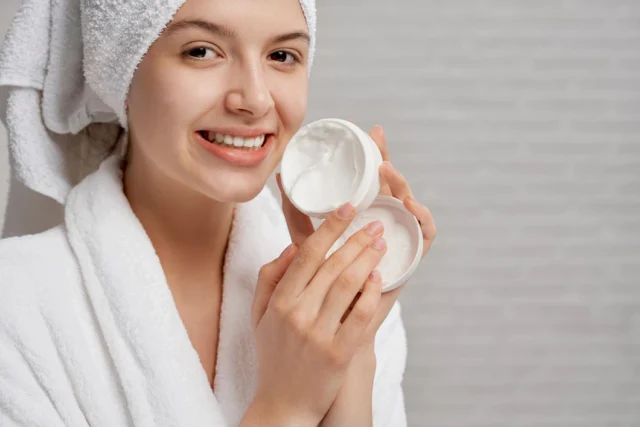
People with oily skin frequently believe that moisturizer may further dampen their skin and exacerbate their acne.
But that’s not how things are. Additionally, oily skin needs moisture, and it’s only sometimes valid that it is always well-hydrated. The reality is frequently the complete opposite.
If the skin loses moisture, the sebaceous glands create more oil to keep the skin hydrated. This defensive activity can block pores and worsen the acne outbreak.
4. Not Cleaning Your Phone
Surprised? People should be. Everyone converses on the phone while holding it between their cheeks.
The next time the phone is held close to the face, sweat, and oil from the face stick to it and are pushed back into the skin.
Cleaning the phone frequently to the manufacturer’s instructions is thus one method of preventing acne outbreaks. If you feel comfortable with them, use headphones to avoid eye contact.
5. Not Applying Sunscreen
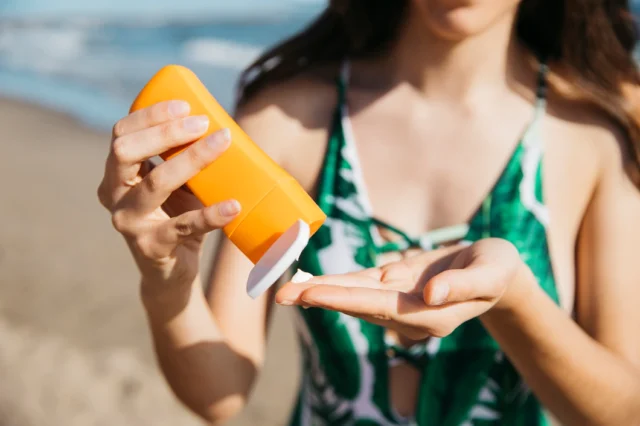
Lack of sunscreen use, which shields the skin from UV radiation, might also affect acne outbreaks. Additionally, some people overuse sunscreen.
The sunscreen may block pores and prevent them from breathing, increasing the likelihood of an acne eruption. To prevent acne, one must use sunscreen as directed by the dermatologist and in the recommended amounts.
Conclusion
Pay attention to what one puts on the face, such as cleansers, moisturizers, and makeup, and what to avoid, such as unwelcome microorganisms from your fingers or dirty brushes and sponges, if you want clear skin.
The skin may benefit from focusing on certain lifestyle aspects, such as getting enough sleep, eating a balanced diet, and managing stress.
It’s not impossible to have clear, healthy, and radiant skin. One may enhance the quality of your skin and lessen the frequency of acne breakouts by making a few straightforward corrections to your existing acne skincare regimen.
Make an appointment with a dermatologist if one has tried various acne treatments without success. To help skin clean up, they could advise treatments like antibiotics or prescription drugs.









